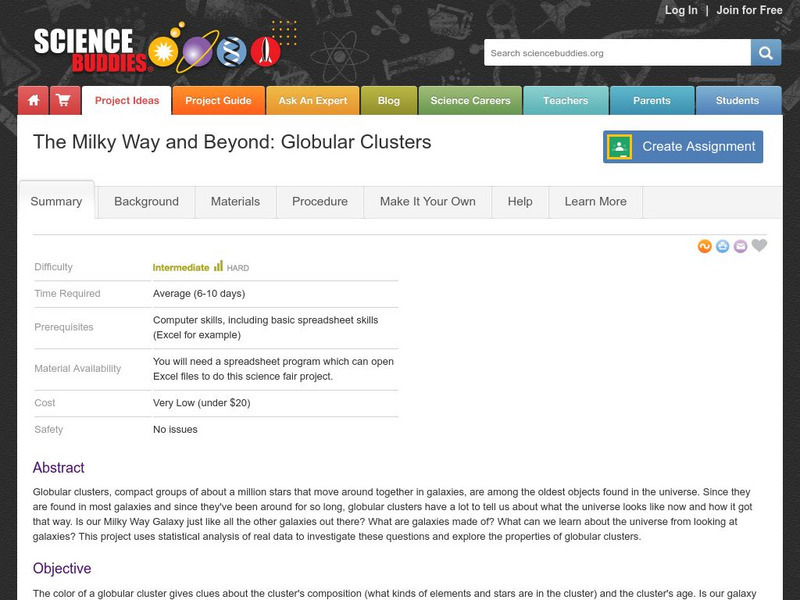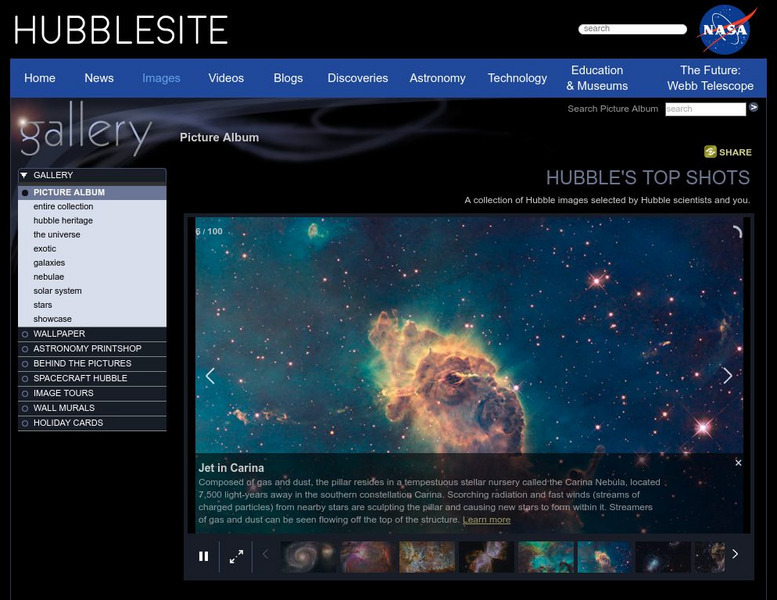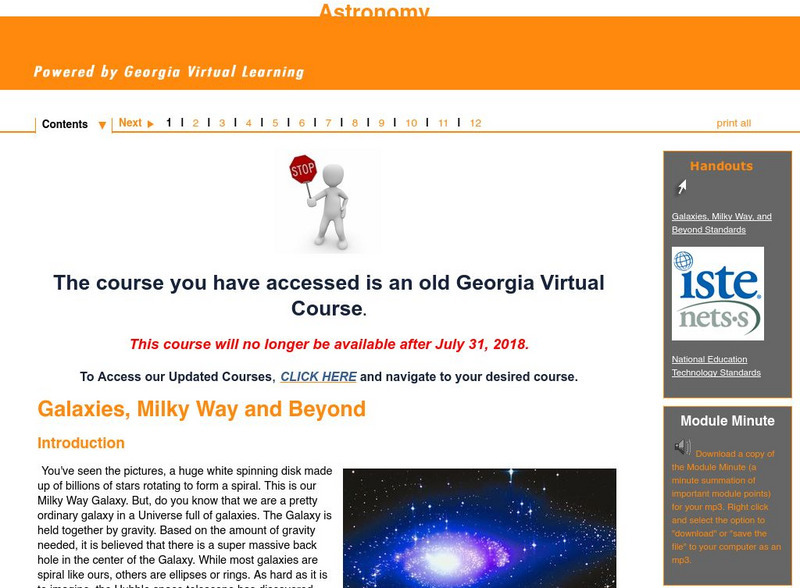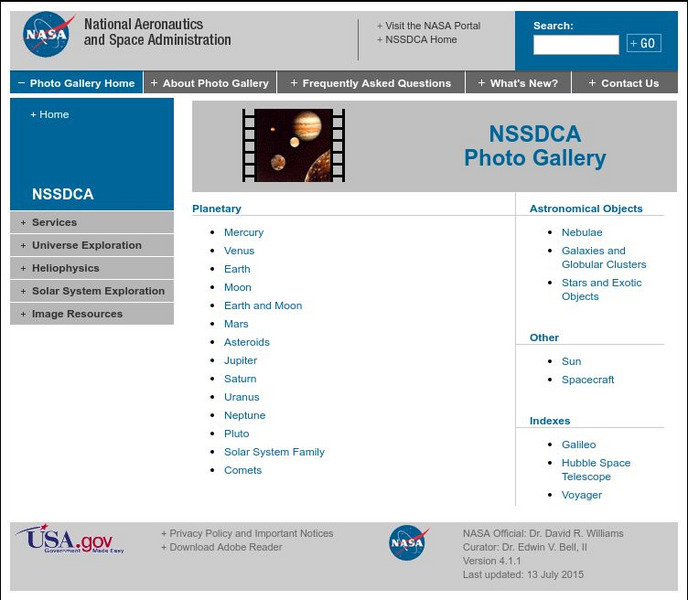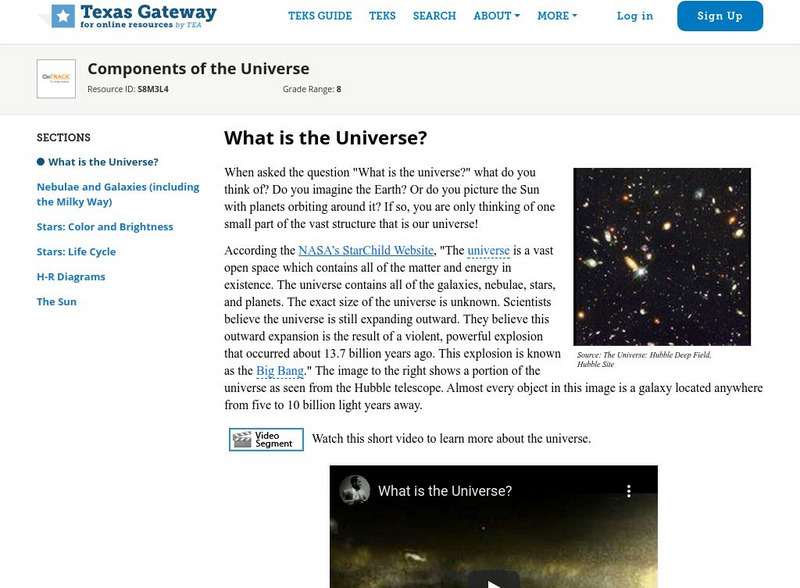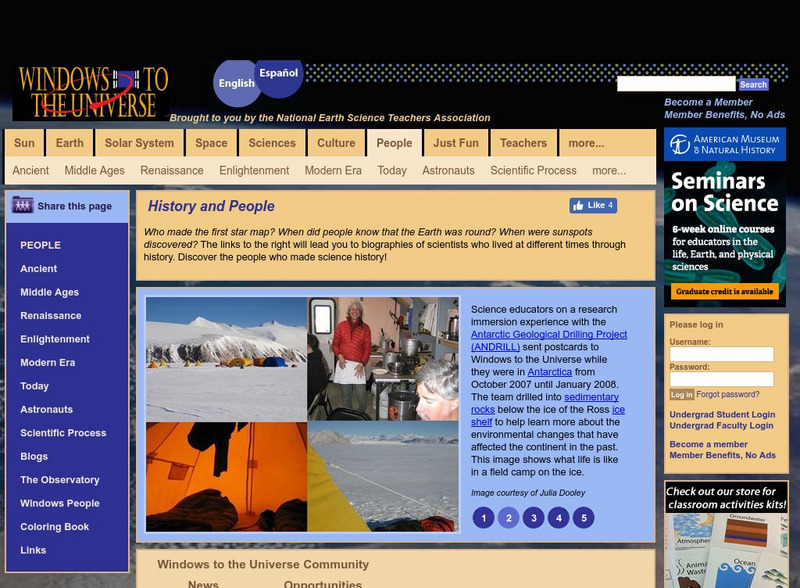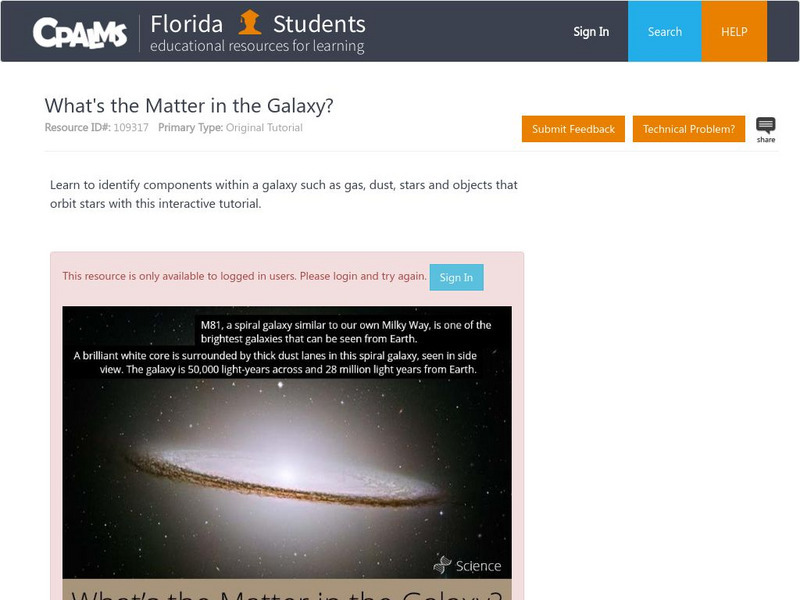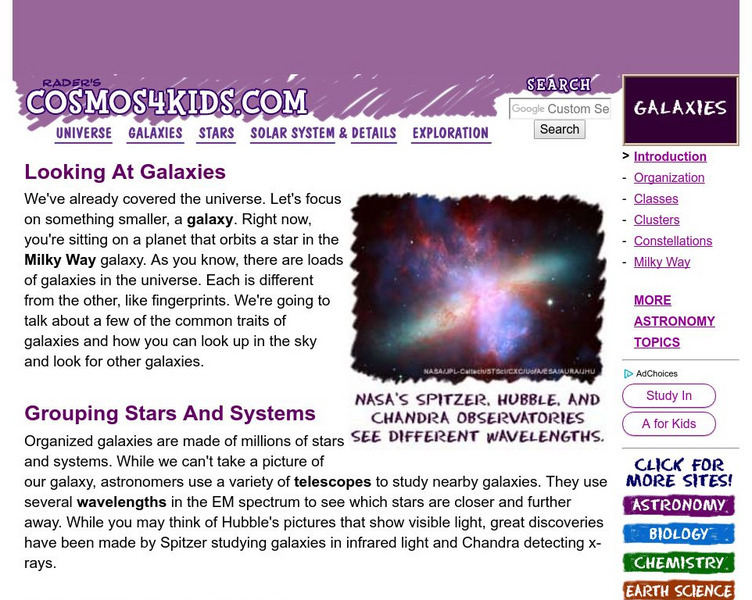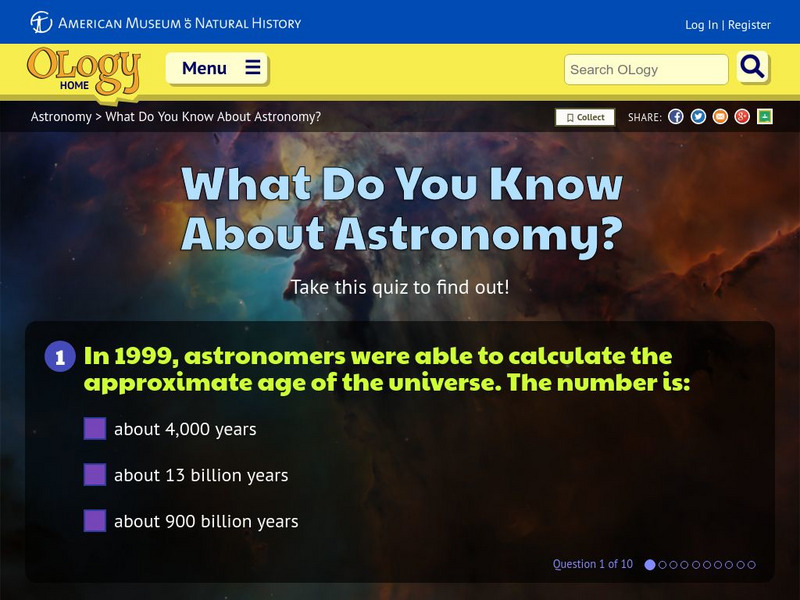Curated OER
Our Universe: Always Moving, Always Changing
Students explore the main concepts of astronomy through the eleven lessons of this unit. The past, present, and future methods of studying the science are examined in this unit.
Curated OER
Collisions Lesson
Tenth graders explore the role that collisions and near collisions of galaxies play in determining the shape of galaxies. They model the collision of disk shaped and spherically shaped galaxies.
California Institute of Technology
Cool Cosmos: Ask an Astronomer
Cool Cosmos and NASA help explore the world of galaxies! This site provides the answers to kid's most frequently asked questions.
Science Buddies
Science Buddies: The Milky Way and Beyond: Globular Clusters
Globular clusters, compact groups of about a million stars that move around together in galaxies, are among the oldest objects found in the universe. Since they are found most galaxies and since they've been around for so long, globular...
Space Telescope Science Institute
Hubble Site: Images From Space
This site provides vivid images taken in space by the Hubble Telescope. You can view the entire collection or choose an area you enjoy the most. Explore galaxies, the solar system, nebulae and more!
ACT360 Media
Act Den: Sky Den
This journey will help you solve big questions about the universe. You will be able to see beyond human capabilities and will learn what scientists are discovering.
Sonoma State University
Sonoma State University: 1938 Bruce Medalist: Edwin Hubble
Site honoring the winners of the Catherine Wolf Bruce medal for lifetime contributions to astronomy. Edwin Hubble, the award winner in 1938, is highlighted in a biography.
Other
Physics.org: A Grain of Sand Covers 10,000 Galaxies
A fascinating look at how big our solar system really is. Shows how we can only see a tiny bit of our vast universe.
Georgia Department of Education
Ga Virtual Learning: Galaxies, the Milky Way and Beyond
In this interactive tutorial students will explore galaxies. Learn what the Milky Way Galaxy is like, how various galaxies are grouped into clusters and superclusters and why those particular galaxies clump together.
NASA
Nasa Space Science Data Archive: Photo Gallery
A website featuring a collection of images from NASA. Collection includes images of planets, comets, nebulae, galaxies, stars, sun, and spacecrafts.
NASA
Nasa: Jet Propulsion Laboratory: Planet Quest: Exoplanet Exploration
Constellation of articles, images, diagrams, posters, videos, and more on the subject of the search for planets, particularly Earth-like planets, outside our solar system.
Texas Education Agency
Texas Gateway: What Is the Universe?
The following tutorial is an explanation of what the universe is composed of.
National Earth Science Teachers Association
Windows to the Universe: History & People
Biographies of people throughout history who looked at the sky and wondered what was there. Links to a detailed description of the planets and interactive activities.
NASA
Nasa Star Child: Dark Matter (Level 1)
This site provides a description of "dark matter" and how scientist study it.
CPALMS
Florida State University Cpalms: Florida Students: What's the Matter in the Galaxy?
A tutorial that looks at the components within a galaxy such as gas, dust, stars and objects that orbit stars. A PDF file of the tutorial is available.
Thinkport Education
Thinkport: Translating Qualitative & Quantitative Details a New Galaxy
In this science-themed literacy lesson, students learn how to read for and differentiate between qualitative and quantitative information.
Other
Northrop Grumman Corporation: Into the Unknown: Resources
The Northrop Grumman Corporation provides numerous resource about outer space and beyond.
National Academy of Engineering
Greatest Engineering Achievements of the 20th Century: Spacecraft
Students learn about spacecraft in the 20th century. Some topics investigated are Apollo, after Sputnik, and exploring galaxies. The resource consists of historical information, a timeline, and a personal essay by a key innovator.
Cosmos 4 kids
Cosmos4 Kids: Galaxies
Learn the basic facts about galaxies. Brief, to the point text make this site most appropriate for younger students.
Cosmos 4 kids
Cosmos4 Kids: Galaxies: Milky Way
Learn the basic facts about the Milky Way. Brief, to the point text make this site most suitable for younger students.
BBC
Bbc: Dark Matter
A clear explanation of how dark matter was discovered and why it is important to astronomers.
Cosmos 4 kids
Cosmos4 Kids: Galaxy Cluster Basics
Understand what galaxy clusters are on this site which contains both information and a video.
American Museum of Natural History
American Museum of Natural History: O Logy: What Do You Know? Astronomy
Take this ten-question self-scoring quiz to test your knowledge of astronomy facts: age of the universe, why stars and planets are spheres, where other life might exist in the outer space, the Milky Way, and more.
University of California
University of California Berkeley: Classifying Galaxies
Find out how galaxies are classified and then see if you can apply that knowledge to identify the different types of galaxies. In addition to explaining Hubble's galaxy classification system, the site has links to Hubble Space Telescope...



